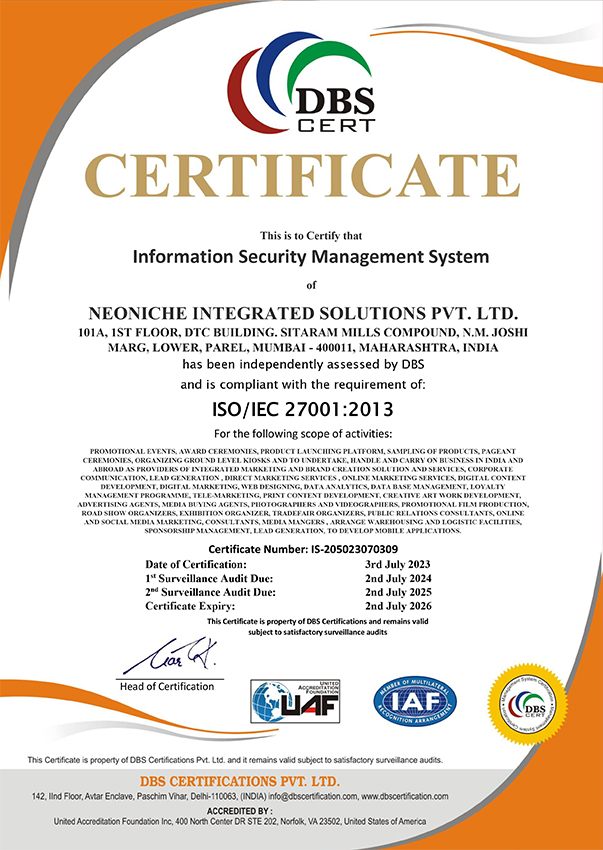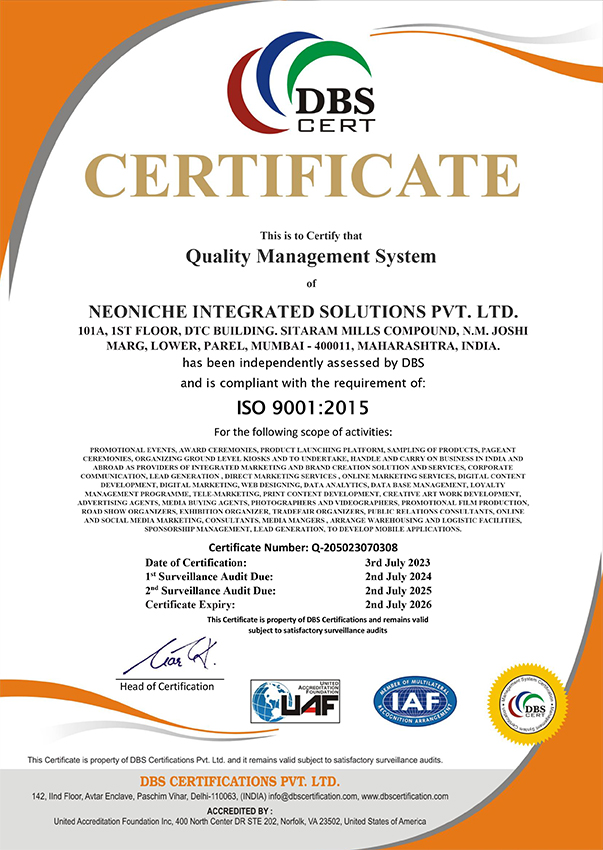– Albert Einstein
The year was 2008, now know as the year of ‘Great Recession’, the world economy in downfall, mass layoffs all around led to people learning the benefits of saving and investing their money and being frugal with their luxury wants. That was the year, people recalled the quote, ‘adversity is the mother of invention.’
Unfortunately, the world was reminded of the same quote yet again in 2019. By the end of March 2020, India, like every other country was under total lockdown due to the spread of Coronavirus. The event industry was hit with a standstill and a bottleneck situation almost absolutely mirroring a scenario of ‘no way forward’. Being challenged is nothing new for the event industry, as we are in a constant pursuit of improvement and innovation which helps to keep our attendees and clients engaged. But this was a challenge nobody ever prepared for, nobody even thought of.
It was a time of anxiety and panic, it was a time of uncertainty, and we saw numerous campaigns and appeal to authorities including the well know ‘Start safe events to save events.’ The journey was long and dreadful, though, soon we had virtual events as a relief, but far from rescue. The virtual events gave a rise to a whole new array of digital services, like virtual rooms, 3D virtual spaces, 3D virtual avatars and more. Online team building activities connected the audience again with each other and we did a lot of experimentation before stepping back into the world of live events. But the digital world hadn’t stopped moving ahead and soon the world came to hear of ‘Metaverse’.
Meta? Or Facebook?
This not the beginning of this story though, because before Meta was Meta, Meta was Facebook and before Meta had Metaverse, Facebook had a pet project called ‘Facebook Spaces’, way back in 2017. On October 25, 2019, Facebook Spaces was shut down to make way for Facebook Horizon and that too was shut down to cut losses and then came the might of Metaverse with the rebranding of Meta in 2022. Lo and behold! People across the world were smitten with the idea and many big names in tech industry have already started pouring their millions into the idea of Metaverse.
Is Metaverse just a fantasy?
Ask Mr. Mark Zuckerberg and he’ll look at you as if you stumbled upon a time machine and jumped right into his boardroom from the 1980s. Even though Meta’s presentation of their giant program didn’t go as planned, many other brands have started to work towards the development of their own version. And quite recently Interpol launched the first-ever ‘metaverse’ specifically designed for law enforcement worldwide, at the 90th General Assembly, here in Delhi.
So, in summary, no, Metaverse is not just a fantasy and is quite possibly what you’ll be interacting with in a few years from now. But yes, it is still a few years down the road and that journey itself has quite some learning opportunities. As we’ve learnt from the past, with every new technology comes its own set of challenges and guidelines. And although Metaverse is supposed to connect the world like never before, there are some chances that it would leave people feel disconnected a lot many times. And that’s where we come in, the curators of inter-personnel experiences, the events and experiential industry.
Challenges with Metaverse
Metaverse will surely improve the quality of interaction and immersivity and will take virtual world experiences to a whole new level. But while we are still in the learning phase of it, we do need to iron out and precautionary weed out some concerns we may encounter. Theoretically, we shall be getting the best of both worlds, where you can create your own avatar and move freely in a virtual world and interact with various engagements without ever standing in a queue and enjoy personal interaction through curated networking scenarios.
But it may not be a path of roses, although you can create one virtually, for all the attendees in the Metaverse. There are chances that some of your attendees might feel alienated as they are not yet accustomed to the VR technology or don’t have access to high-speed internet connectivity (remember the awkward video calls?). Furthermore, not everyone likes their mind being blown to bits with tons of customisation options and a wide array of activities set out in the virtual arena, conversely it immediately makes them feel at discomfort and ousted due to lack of practice with the platform.
Metaverse, here we come
A lot of these can be fixed even before you practically face them, and the answer to a lot of them is time. Metaverse can benefit greatly from imbibing our human behaviour analytics and responses to the virtual arena we are creating. Share your content in multiple languages, label and highlight the important parts throughout the arena, create a 3D layout map of the whole arena so your attendees don’t have to jump hoops to roam around, and most importantly, give your attendees time to access and analyse this new world. Allow them to understand and simplify this new technology through their own lenses and once they adapt to it, you will have an immersed and happy customer, who will keep coming back to it.
With the pandemic we have learnt that it is no longer a liberty, rather a requirement to be prepared for what challenges tomorrow might present, and everything is ‘quite’ possible. The future belongs to the Metaverse, but before we can dive in the benefits, we need to embrace the learnings and make ourselves prepared for it. The only way is ahead, and ahead we shall move, into the Metaverse.


